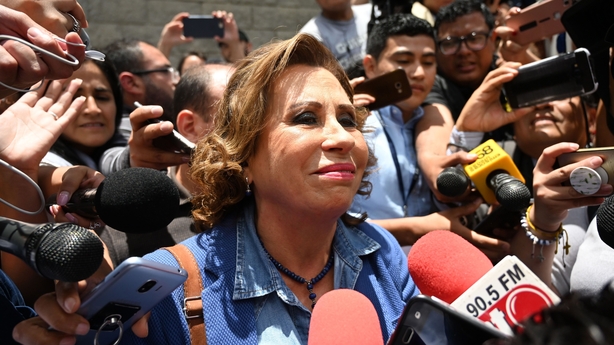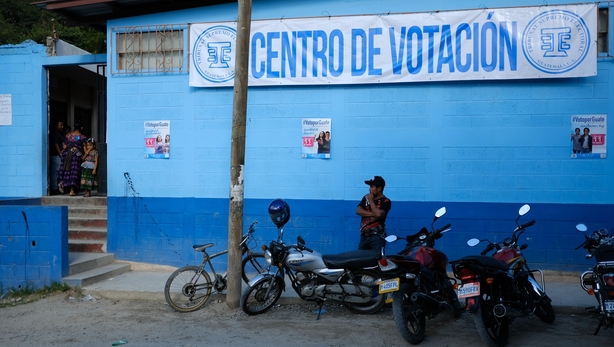The new president of Guatemala Alejandro Giammattei has said he hopes to make changes to a controversial migration deal agreed with the United States last month.
Mr Giammattei, who was elected following a run-off, said he wanted to see what could be done to improve the deal that would allow the US to send asylum seekers who passed through Guatemala back to the country
Mr Giammattei defeated former first lady Sandra Torres in a run-off.
With the results being updated in real time on the court's website, the institution's president Julio Solorzano declared the result "already irreversible".
Mr Giammattei will succeed corruption-tainted outgoing President Jimmy Morales, who leaves office in January.
"The aim is fulfilled," Mr Giammattei had said earlier.
He had polled almost 58.5% with a lead of 550,000 votes and only a few thousand left to count when the court declared him the victor.
Mr Giammattei will be under immense pressure from the US to implement a controversial migration pact that would allow Washington to send most Honduran and Salvadoran asylum seekers who passed through Guatemala back to the poor, crime-stricken country.

The two candidates had both avoided committing to strong positions on the US deal.
Corruption was the main issue leading up to the first round of elections in June, which Ms Torres topped, but that has been superseded by the political scandal over the migration deal.
Neither candidate arrived with a glowing reputation.
Ms Torres, whose ex-husband Alvaro Colom was president from 2008-2012, has been suspected of involvement in corruption.
Influential businessman Dionisio Gutierrez recently described her as "a questionable politician with a history that should worry any citizen".
Mr Giammattei has hardly come off any better.
Investigative website Nomada branded him as "impulsive... despotic, tyrannical... capricious, vindictive," among other undesirable traits.

But the 63-year-old, a doctor by profession, scored well on voter concerns such as the economy, corruption and security, according to Risa Grais-Targow of the Eurasia Group.
However, he now faces "a lose-lose scenario" regarding the migration pact, Ms Grais-Targow said.
One of Mr Morales's last acts as president was to authorise an agreement with the US administration of Donald Trump designating Guatemala as a "safe third country," which would permit Washington to turn away asylum seekers who did not seek refuge when passing through Guatemala.
The pact, which is part of Mr Trump's campaign to stem the flow of migrants to the southern US border, has proved highly unpopular in Guatemala, with demonstrators blocking roads and occupying the University of San Carlos in protest.
In a poll by Prodatos for the Prensa Libre newspaper, 82% of respondents opposed it.
But rejecting the migration pact would run the "risk of retaliation from Trump," Ms Grais-Targow said, after the US leader threatened a travel ban, tariffs and remittance fees if the country did not bend to his will.
Remittances from Guatemalans in the US are a crucial part of the economy, reaching a record $9.3bn last year. That compares to Guatemala's export revenue of $10.5bn.

